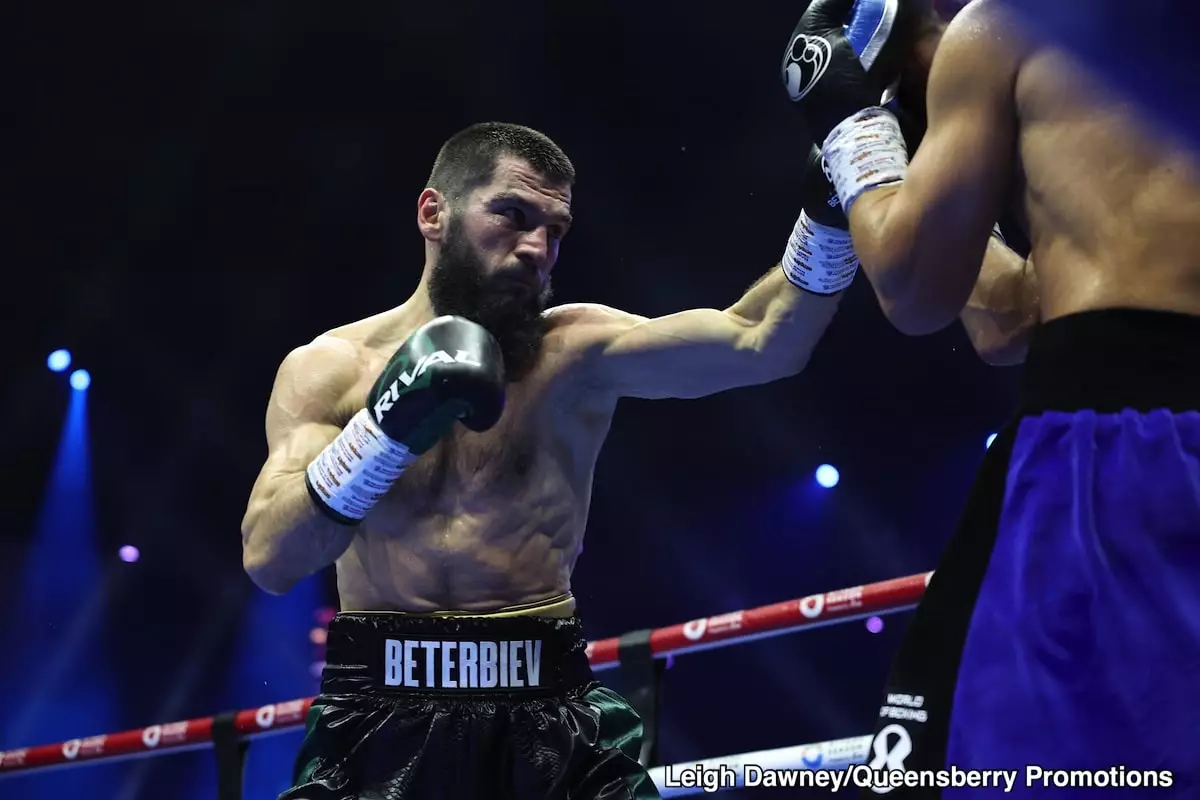In the world of professional boxing, title defenses and mandatory challenges are strategic cornerstones, often generating substantial debates about fairness and competition. Recently, promoter Bob Arum expressed his exasperation towards the International Boxing Federation (IBF) for mandating that the newly crowned undisputed light heavyweight champion, Artur Beterbiev, defend his title against the relatively unknown Michael Eifert. Following Beterbiev’s thrilling victory over Dmitry Bivol, a fight seen by many as a pinnacle of achievement in his career, the IBF’s decision to place a lesser-known fighter in his path has raised eyebrows within the boxing community.
Bob Arum’s reaction stems from the notion that the IBF is enforcing a rule that appears disconnected from the realities of boxing’s promotional landscape. With Beterbiev boasting an impressive record of 21 wins, 20 of which were by knockout, the demand to face Eifert—who holds a modest record of 13 wins, 1 loss—seems misplaced. Arum highlighted the absurdity of needing to engage in a fight with a “non-entity,” arguing that it detracts from the prestige associated with being an undisputed champion. He articulated a sentiment many in the sport feel: that the rules should evolve to mirror the current competitive environment rather than stifle meaningful matchups in favor of less significant mandates.
In light of the IBF’s ruling, questions arise about Beterbiev’s potential responses: would he vacate his title, or could a step-aside agreement with Eifert be considered? Such considerations indicate the strategic maneuvering common among champions faced with less-than-stellar mandatory challengers. Prominent figures, including Saudi Arabian official Turki Alalshikh, are eyeing a potential rematch between Beterbiev and Bivol, a bout that many perceive as controversial due to alleged tactical shortcomings from Bivol during their last encounter. However, the allure of fighting big names like Canelo Alvarez or David Benavidez holds more significant weight, especially considering the substantial pay-per-view revenue they could generate.
Arum’s preference for Beterbiev’s next opponent reflects broader sentiments in the boxing world. From a commercial and competitive standpoint, a showdown against Canelo Alvarez is seen as the most lucrative option, promising not just financial rewards but also a meaningful legacy fight for the champion. In contrast, a rematch with Bivol, while intriguing due to their recent clash, lacks the same excitement, as Bivol’s more defensive fighting style has been criticized for being lackluster compared to more explosive contenders like Alvarez or Benavidez.
The current situation surrounding Artur Beterbiev and the IBF’s mandate encapsulates a recurring struggle within boxing: balancing tradition with the evolving needs of the sport and its audience. As Arum vocally criticizes the rigid rules that govern champion defenses, it becomes clear that the future of boxing may hinge on re-evaluating these regulations to ensure that relevance, audience engagement, and the growth of boxing as a sport remain paramount. As fans, promoters, and fighters navigate these dynamics, it’s evident that conflict between regulatory bodies and the commercial aspirations of boxing will continue to be a hot topic of discussion.

